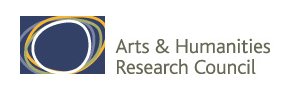Codex Zacynthius
Discovering the secrets of the oldest Greek New Testament catena manuscript - Codex Zacynthius MS Add.10062. This project was led by Professor David Parker (Principal Investigator) and Dr Hugh Houghton (Co-Investigator) and was funded by an Arts and Humanities Research Council Research Grant.
Codex Zacynthius is the oldest manuscript of the Greek New Testament to contain extracts from writings by early Christian theologians, known as a catena, as well as the biblical text. The manuscript was copied around the year 700 and contained the Gospel of Luke, with the extracts written around it in the three outer margins.
It is what is known as a palimpsest: in the thirteenth century, the manuscript was dismembered and as much as possible of the ink scraped off. It was then reconstructed in a new shape and used to make a lectionary manuscript of the Gospels, written at right-angles to the original text. As a result, the older text is incomplete and much of it has been illegible ever since.
Because the older manuscript was so thoroughly cleaned, it cannot be fully read either by eyesight or by traditional photography. But by using multi-spectral imaging, the original underlying text has been readable for the first time, and the project team was able to make the first complete transcription.
Recovering these original extracts gives us tantalising glimpses of lost writings and lost interpretations. Some of these excerpts are taken from writings of which no copies survive. Sometimes these are writings expressing views later deemed heretical, so that we lost access to the views themselves and only saw them through their opponents' eyes.
The project team, including seven members in addition to David and Hugh, was based in the Institute for Textual Scholarship and Electronic Editing at Birmingham. Cambridge University Library, which houses the manuscript, was a partner in the project: it oversaw the imaging, hosts the website, and curated an exhibition at the close of the project. The library bought the manuscript in 2014. The two-year project ran from February 2018 to January 2020.
- Further information on Codex Zacynthius at the Cambridge University Library
- The electronic edition produced by the project and hosted by Cambridge Digital Library
- Open access links to the volume of studies [PDF, 10.1 MB] produced by the project and the printed edition and translation [PDF, 9 MB].
